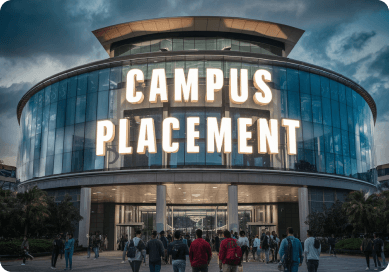Enter OTP



Strasbourg, France

Strasbourg, France

Cost Of Living

Undergraduate Fees International Students

Post Graduate Fees International Students

The University of Strasbourg stands out for its strategic European location, interdisciplinary academic offerings, and research intensity. It is one of the few French universities with Nobel Prize-winning alumni and faculty, underscoring its tradition of excellence. A major USP is its strong focus on multilingualism and internationalization, with courses offered in French, English, and German, attracting students globally. The university is also known for its world-class research institutes, such as the Institute of Molecular and Cell Biology and the CNRS research units. Its proximity to EU institutions provides unique exposure to international law, politics, and business. Moreover, Strasbourg supports student entrepreneurship, digital transformation, and social innovation, setting it apart in the French academic landscape. This fusion of history, innovation, and global relevance makes it a top destination for students seeking a comprehensive European education.
A Nobel Peace Prize laureate (1952), Schweitzer was a theologian, philosopher, and physician known for his humanitarian ... View More
A Nobel Peace Prize laureate (1952), Schweitzer was a theologian, philosopher, and physician known for his humanitarian work in Africa. View Less
Nobel Prize winner in Chemistry (1987), recognized for his work in the field of supramolecular chemistry.
Physicist who received the Nobel Prize in Physics (1967) for his work on the theory of stellar nucleosynthesis.
Renowned philosopher, known for his contributions to phenomenology, hermeneutics, and existentialism.
Belgian theoretical physicist and co-recipient of the Nobel Prize in Physics (2013) for the discovery of the Higgs boson... View More
Belgian theoretical physicist and co-recipient of the Nobel Prize in Physics (2013) for the discovery of the Higgs boson. View Less
Celebrated orchestra conductor and former music director of the Boston Symphony Orchestra.
Influential historian and co-founder of the Annales School of historical writing.
Strasbourg’s infrastructure blends historic charm with cutting-edge technology. Its campuses include modern lecture halls, fully equipped laboratories, digital classrooms, libraries, performance spaces, and research centers. Facilities are designed to be inclusive and accessible, with robust IT networks and online platforms like Moodle and ENT for remote learning. The Learning Centre offers collaborative study spaces and high-tech learning tools. Scientific infrastructure includes advanced equipment in areas like genomics, material science, and imaging. The Medical Faculty benefits from proximity to university hospitals with state-of-the-art simulation and diagnostic labs. The university also maintains artistic and cultural venues, botanical gardens, and sports facilities. Green initiatives are embedded in infrastructure planning, with bike lanes, solar panels, and sustainable buildings. This infrastructure supports a comprehensive and enriching student experience that merges tradition with future-ready education and research.
Student life at Strasbourg is vibrant and multicultural, with over 150 student associations covering interests such as arts, sports, politics, science, and entrepreneurship. Events like Les Journées des Initiatives Étudiantes and Strasbourg Student Night foster campus engagement. The city’s international atmosphere enriches student experience with festivals, museums, theaters, and cafes. Clubs such as Agoraé offer social grocery stores, while ESN Strasbourg facilitates exchange student activities. Students participate in debates, exhibitions, concerts, and volunteering projects. On-campus spaces like the Maison de l’Étudiant serve as social hubs. Cultural programs in music, cinema, and dance enhance creativity and well-being. Affordable student housing, libraries open late, and recreational spaces contribute to a comfortable lifestyle. Proximity to EU institutions also gives students access to policy debates and global perspectives, making Strasbourg an intellectually and culturally stimulating environment for student life.


The university’s Career Center provides extensive services to ensure students are well-prepared for professional life. Career counseling, resume workshops, and mock interviews are regularly held. The university’s close ties with industries in Strasbourg, Germany, and wider Europe enable internships, placements, and apprenticeships. Career fairs bring top companies to campus, offering students direct recruitment opportunities. Specialized support is available for international students seeking work permits or internships. Academic departments also include mandatory internship modules for many programs. The digital career portal provides job listings, training opportunities, and networking events. Students can access mentoring from alumni and participate in entrepreneurship incubators. Personalized career planning, including guidance for academic careers and Ph.D. paths, is available. These initiatives ensure high employability rates and prepare students to transition smoothly from academics to a rewarding professional career.
The below information is required while
completing the university application :
a) Online application form
b) Completed at least one year in a foreign university and wish to pursue your studies
c) French or foreign diplomas /degrees
d) Initial or continuing education you may have completed
e) Work experience and internships
f) Personal experience: involvement in associations or study trips
Requirements may vary for each program. Please visit the program page for specific requirements.
Know moreThe University of Strasbourg maintains strong ties with local, national, and international employers to facilitate robust campus recruitment. Its Career Center organizes regular job fairs, company presentations, and industry-led workshops, connecting students with top recruiters across fields such as biotechnology, pharmaceuticals, engineering, law, and public policy. Notable companies like Sanofi, Bio-Rad, Orange, Capgemini, and Crédit Mutuel frequently participate in university events. Dedicated internship programs and research placements are coordinated with corporate and institutional partners, often leading to full-time employment. Students benefit from career guidance, resume building, and interview coaching through the university’s professional development services. Additionally, academic departments maintain individual networks, particularly in science and healthcare sectors, where graduates often secure positions in research labs or hospitals. This synergy between academics and industry helps ensure strong employability outcomes for Strasbourg’s graduates.



The University of Strasbourg has earned international acclaim for its academic and research achievements. It is home to four Nobel Laureates, including Jean-Marie Lehn (Chemistry, 1987) and Jules Hoffmann (Physiology or Medicine, 2011). Ranked consistently among the top universities in Europe, it features prominently in the QS and Shanghai rankings. The university leads numerous EU Horizon 2020 research projects and has received Excellence Initiative funding (IDEX) from the French government, affirming its elite status. It hosts one of the largest and most successful technology transfer programs in France through SATT Conectus. Strasbourg has also made strides in sustainability, winning awards for green campus initiatives. Its students and faculty have been recipients of national literary and science awards, and the university frequently wins innovation competitions. These accolades reflect its commitment to excellence in teaching, research, and societal impact.


Recognized for Eucor’s cross-border education model and research impact.
Won €10 million to study ancient European migrations using AI and DNA analysis.
Rolled out virtual labs and AI-driven tutoring systems during lockdowns.
The university was honored with this national award for excellence in coordinating European research projects, particularly in the life sciences and nanotech.
Won €800 million in French government funding to boost research in life sciences, materials science, and European studies.
The University of Strasbourg is a powerhouse of innovation and research, boasting over 70 research units and partnerships with leading national institutions like CNRS, INSERM, and INRIA. The university excels in fields such as molecular biology, chemistry, physics, medicine, and the humanities. It houses the Institute of Advanced Studies (USIAS) and several Laboratories of Excellence (LabEx). Nobel Laureate Jean-Marie Lehn’s pioneering work in supramolecular chemistry exemplifies its innovative spirit. The university encourages interdisciplinary and international research through European Union-funded projects and partnerships. It supports startups and spin-offs via SATT Conectus Alsace, providing funding and technology transfer services. Regular hackathons, innovation festivals, and incubation programs promote student-driven innovation. Through state-of-the-art labs, cross-border research cooperation, and public-private collaborations, Strasbourg fosters a dynamic R&D environment contributing significantly to scientific and technological advancements globally.
Researchers developed nanocarriers that release drugs upon exposure to light, offering precision cancer treatment options.
Strasbourg’s biomedical team innovated early 3D bioprinting of human tissues, contributing to regenerative medicine.
The university’s physicists developed advanced crystals enhancing laser technology, with wide use in communications and defense.













Embark on your educational journey with confidence! Our team of admission experts is here to guide you through the process. Book a free session now to receive personalized advice, assistance with applications, and insights into your dream school. Whether you're applying to college, graduate school, or specialized programs, we're here to help you succeed.
